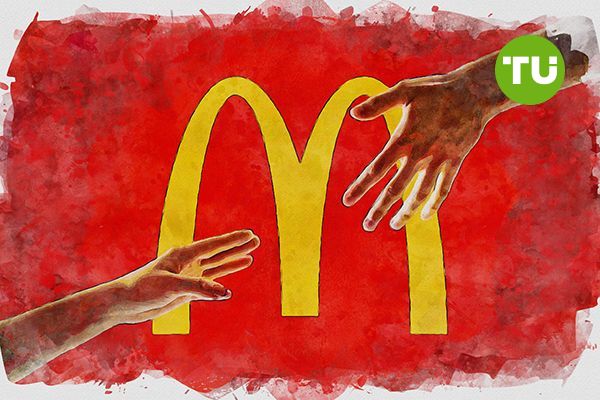Long-distance relationship: Why McDonald's refused to accumulate Bitcoin
 What was the outcome of McDonald’s cryptocurrency experiments?
What was the outcome of McDonald’s cryptocurrency experiments?
McDonald’s shareholders proposed creating a Bitcoin reserve. However, the company’s legal team found a reason to reject the idea. Now the fast-food chain, which has been eyeing cryptocurrencies for years, might miss out on a promising trend.
A few weeks ago, the National Center for Public Policy—a think tank and shareholder in McDonald’s—urged the fast-food chain’s leadership to acquire Bitcoin as a reserve asset.
“McDonald’s is widely regarded—most notably by former CFO and President Harry Sonneborn—as a real estate company that happens to sell burgers. Real estate has indeed been a more reliable store of value than cash or bonds, but it won’t appreciate nearly as much as Bitcoin, and it lacks Bitcoin’s liquidity. As more and more companies add Bitcoin to their balance sheets, if McDonald’s fails to follow suit, it risks falling behind—where it once led,” stated the shareholders, inspired by companies like Strategy and Metaplanet.
McDonald’s legal team was puzzled by the proposal and reached out to the U.S. Securities and Exchange Commission (SEC) for clarification. The regulator’s response was brief: McDonald’s has the right to reject the proposal, as it falls under the company’s ordinary business operations. No one can force the company to hold Bitcoin.
McDonald’s crypto experiments
McDonald’s first took an interest in cryptocurrencies back in 2021—amidst a surge in global enthusiasm for digital assets. That year, the company registered several trademarks related to digital products and announced its intention to adapt to the new digital reality.
In April 2021, McDonald’s began implementing its plans by launching a series of NFTs based on its most iconic menu items. These tokens were uploaded to the OpenSea marketplace and raffled off among customers.
Loading...
In September that same year, El Salvador became the first country in the world to recognize Bitcoin as legal tender. McDonald’s seized the moment and, alongside Pizza Hut and Starbucks, began accepting cryptocurrency payments in the country.
Loading...
The next step came in the virtual reality space. McDonald’s filed trademark applications to create virtual restaurants and sell digital assets in the metaverse. However, the initiative went no further than trademark filings. As metaverses failed to gain widespread popularity, the company chose not to pursue this direction.
Loading...
Another place where you can buy burgers with crypto is Lugano. The small Swiss city launched an experiment in March 2022 called Plan B—where Bitcoin, USDT, and the local LVGA token gained payment status. Since then, local McDonald’s restaurants have accepted Bitcoin and USDT.
Loading...
Keeping their distance
McDonald’s was one of the first major companies to show interest in cryptocurrencies. The fast-food chain even experimented with digital assets—from NFT projects to accepting Bitcoin payments in select countries like El Salvador and Switzerland. However, these steps were more marketing-driven than a strategic pivot toward a crypto economy.
The decision to reject the Bitcoin reserve proposal further confirmed that McDonald’s is not yet ready to integrate cryptocurrency into its financial model. Despite shareholder calls and growing institutional interest in digital assets, the company exercised its right not to bring the proposal to the agenda, citing legal grounds.
While competitors adapt to the new economic reality, McDonald’s is in no hurry to change its business model. This conservative approach may preserve the company’s stability—but it could also cost it the chance to be a pioneer in a new financial era.













































































































































